
Grèbe à Bec Bigarré Réservoir Beaudet Victoriaville Michel Lachance
10.9K subscribers Subscribe 1.7K views 3 years ago ÉTANG BURBANK Grèbe à bec bigarré, on entend son cri au début de la vidéo. Filmé à l'étang Burbank, Danville Pied-billed Grebe, we can hear.

Grèbe à Bec Bigarré (Podilymbus podiceps)
Grèbe à bec bigarré Podilymbus podiceps - Pied-billed Grebe Systématique Ordre : Podicipédiformes Famille : Podicipédidés Genre : Podilymbus Espèce : podiceps Descripteur Linnaeus, 1758 Biométrie Taille : 38 cm Envergure : 56 à 64 cm. Poids : 339 à 458 g Distribution Description de la famille

Grèbe à Bec Bigarré ! Yves Courtemanche Flickr
Le grèbe à bec bigarré (Podilymbus podiceps) est un oiseau aquatique de la famille des podicipedidae. En période de reproduction, son front et sa gorge présentent des taches noires et son bec pâle possède une bande noire. C'est un nicheur/migrateur commun présent dans les étangs, les lacs et les marais. Le grèbe à bec bigarré.
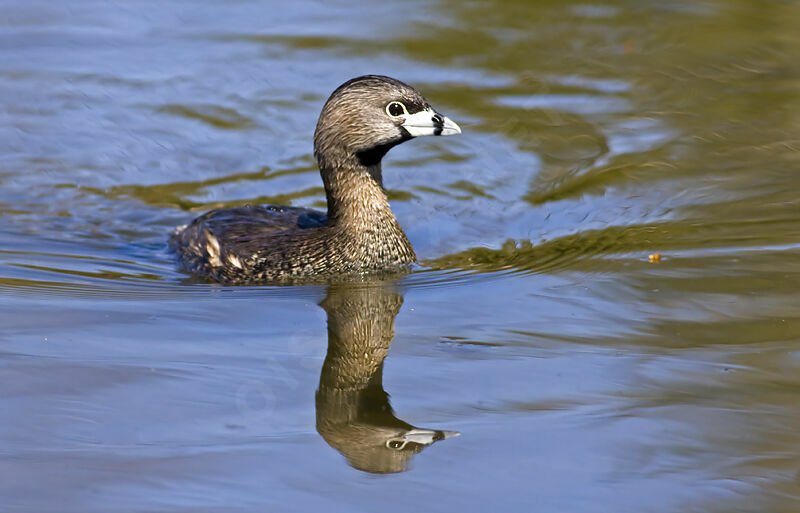
Grèbe à bec bigarré adulte rabi67036
IOC Classification : Domain : Eukaryota • Regnum : Animalia • Phylum : Chordata • Subphylum : Vertebrata • Infraphylum : Gnathostomata • Superclassis : Tetrapoda • Classis : Aves • Superordo : Neognathae • Ordo : Podicipediformes • Familia : Podicipedidae • Genus : Podilymbus • Species: Podilymbus podiceps (Linnaeus, 1758)

Grèbe à bec bigarré
Petit corps ramassé brun gris et bec court et épais. Corps plus court et plus rond que celui d'un canard. Plumage brun uni toute l'année, moins noir que celui d'une foulque. Adulte nicheur, bec blanc entouré d'un anneau noir. Habite les étangs et les marais à végétation émergente. Plonge pour se nourrir principalement de poissons. Yeux noirs.

Grèbe à bec bigarré Podilymbus podiceps BioObs
Le Grèbe à bec bigarré, qui a besoin d'étangs et de milieux humides tout au long de son cycle annuel, est largement réparti au Canada. Les résultats du Relevé des oiseaux nicheurs (BBS) indiquent que la population de l'espèce a connu une augmentation modérée au Canada par rapport à 1970, une certaine variation régionale ayant toutefois été observée.

Grèbe à bec bigarré Suzanne Houle Flickr
French: Grèbe à bec bigarré + Page contents. About the pied-billed grebe. Migration animation. Visual guide to phenology. Graphs and historical data. More resources. About the pied-billed grebe. The pied-billed grebe is a small, brown waterfowl that eats mainly eat small fish, amphibians, and aquatic invertebrates.

Photos Grèbe à bec bigarré, Piedbilled Grebe
English: Pied-billed Grebe Esperanto: Makulbeka grebo español: Zampullín Picogrueso eesti: Vöötnokk-pütt euskara: Txilinporta mokolodi فارسی: کشیم نوکابلق suomi: Paksunokkauikku føroyskt: Stúvgjør français: Grèbe à bec bigarré Gaeilge: Foitheach Gob-alabhreac galego: Mergullón bicogroso
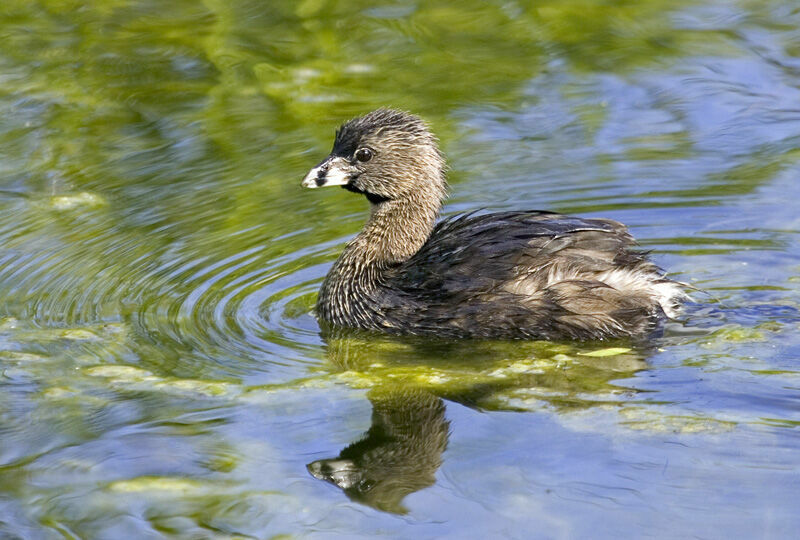
Grèbe à bec bigarré femelle adulte rabi35468
Search from Grèbe à Bec Bigarré stock photos, pictures and royalty-free images from iStock. Find high-quality stock photos that you won't find anywhere else.

Grèbe à bec bigarré adulte mila69918
Seven Simple Actions to Help Birds Try Merlin Part bird, part submarine, the Pied-billed Grebe is common across much of North America. These small brown birds have unusually thick bills that turn silver and black in summer. These expert divers inhabit sluggish rivers, freshwater marshes, lakes, and estuaries.
Grèbe à bec bigarré Observation Fou des oiseaux
Pied-billed Grebe (Grèbe à bec bigarré) The Pied-billed Grebe ( Podilymbus podiceps) is a species of the grebe family of water birds. Since the Atitlán Grebe ( Podilymbus gigas) has become extinct, it is the sole extant member of the genus Podilymbus. The Pied-billed Grebe is primarily found in ponds throughout the Americas.
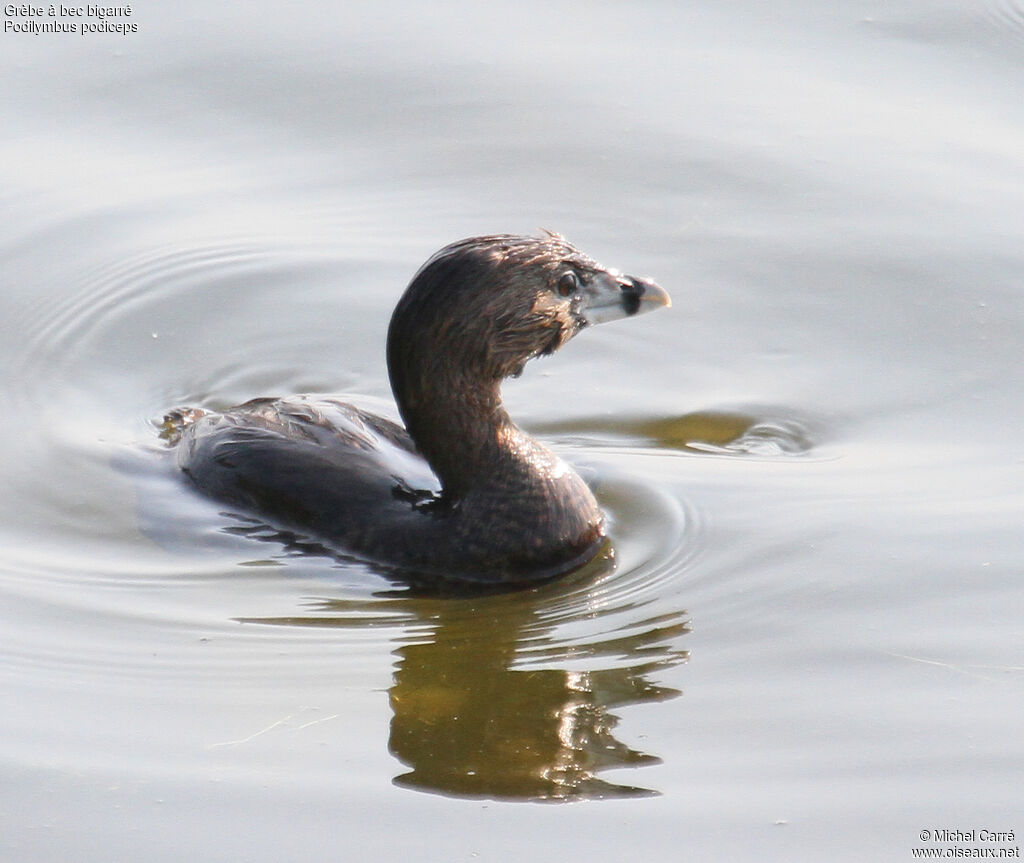
Grèbe à bec bigarré adulte nuptial mica90426
Small brown grebe with a stout bill. Note dark eyes. During breeding season, look for black ring around white bill. In winter, neck is often washed with a cinnamon tone. Juvenile has stripes on head. Fairly common and widespread throughout the Americas, where it occurs on ponds and marshes, often with emergent vegetation. Frequently dives underwater to feed on fish.
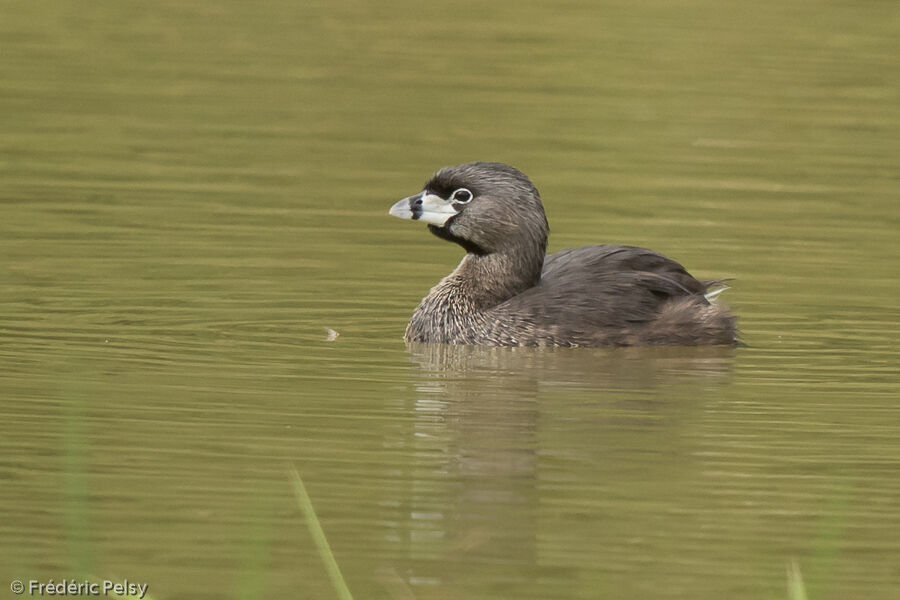
Grèbe à bec bigarré adulte frpe224170
Le Grèbe à bec bigarré ( Podilymbus podiceps ), parfois aussi appelé Grèbe à gros bec ou Grèbe à bec cerclé, est une espèce d' oiseaux de la famille des Podicipedidae, la famille des grèbes, oiseaux aquatiques. C'est le grèbe qui possède la répartition la plus vaste sur le continent américain. Il n'est que rarement présent en.

Grèbe à bec bigarré mila36146
French: Grèbe à bec bigarré, Grèbe à bec cerclé, Grèbe à gros bec Irish: Foitheach Gob-Alabhreac, Spágaire gob-bhreac Guadeloupean Creole French: Plongeon Galician: Cabusset becgròs, Merguillete de bico groso, Mergullón bicogroso, Mergullón de bico groso Guarani: Myaka, Ype apa, Ype-apa Manx: Greeb gob-breck
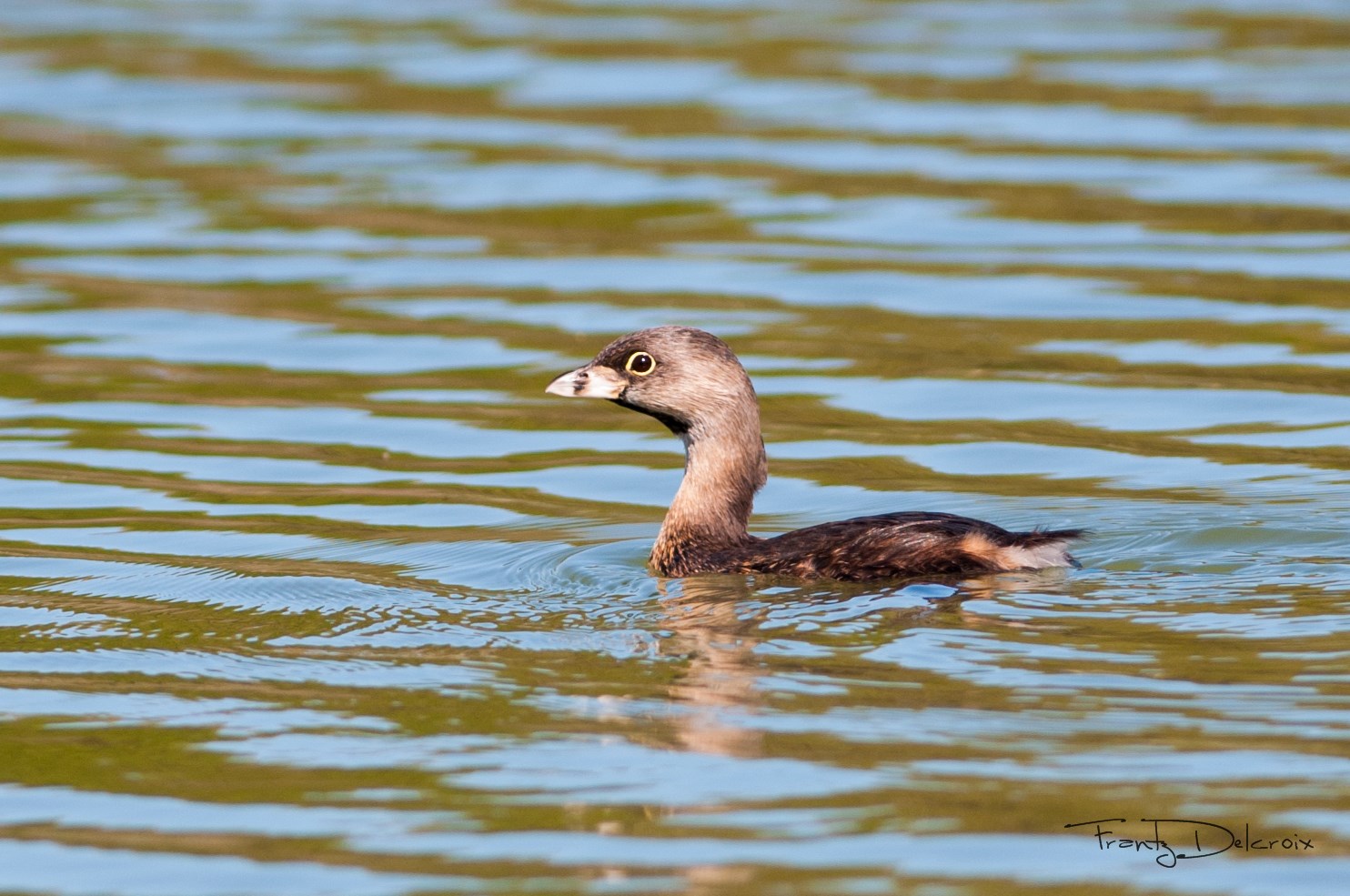
Grèbe à bec bigarré
Pied-billed Grebe: English (United States) Pied-billed Grebe: Faroese: Stúvgjør: Finnish: paksunokkauikku: French: Grèbe à bec bigarré: French (France) Grèbe à bec bigarré: Galician: Merguillete de bico groso: German: Bindentaucher: Greek: Παρδαλόραμφο Βουτηχτάρι: Haitian Creole (Haiti) Plonjon fran: Hebrew.

Grèbe à bec bigarré adulte nuptial hemi53880
Pied-billed Grebe Podilymbus podiceps - Grèbe à bec bigarr. Grèbe à bec bigarré, Zampullín picogrueso, mergulhão-caçador, Bindentaucher, gyűrűscsőrű vöcsök, Dikbekfuut, Podilimbo, tjocknäbbad dopping, Ringnebbdykker, potápka škvrnitozob.